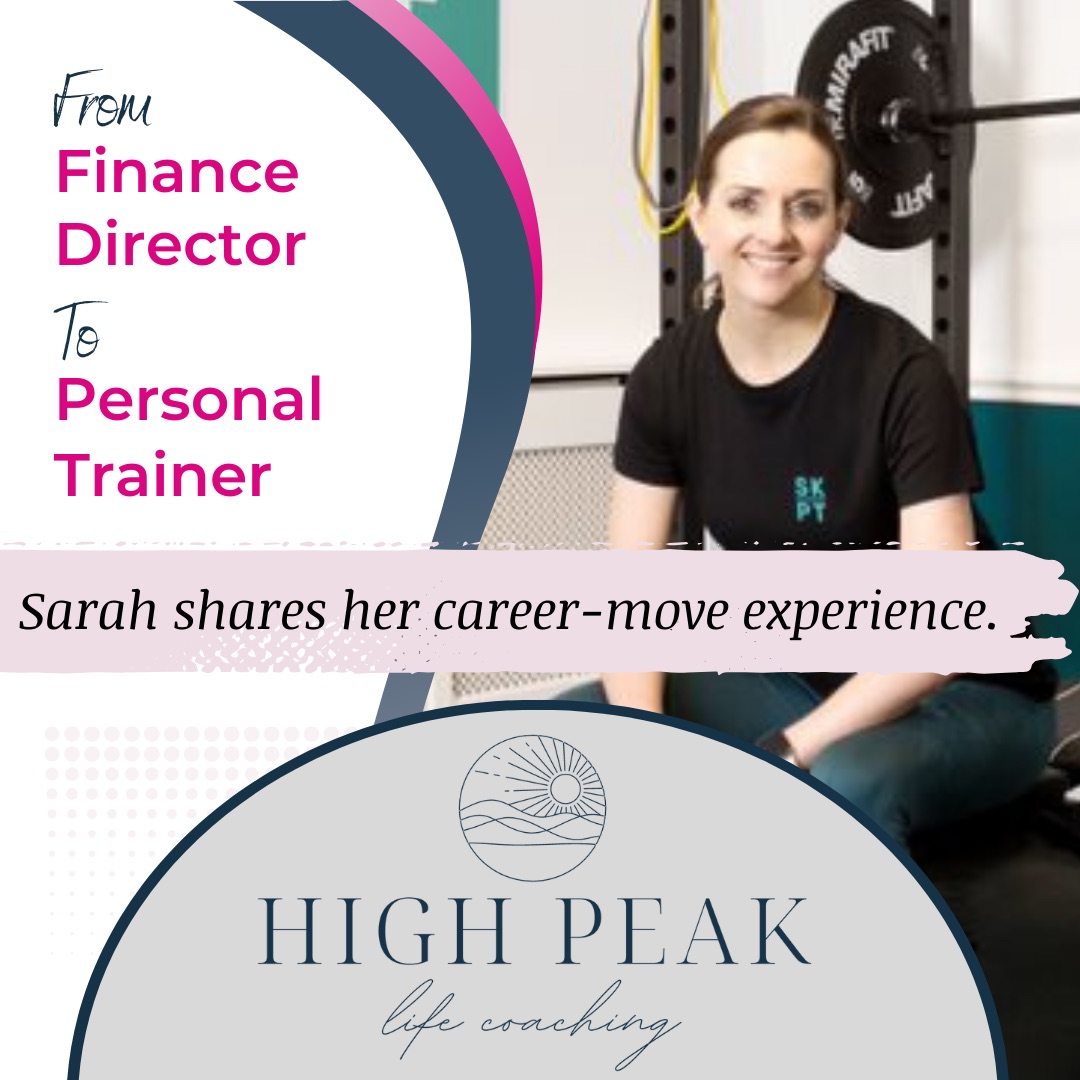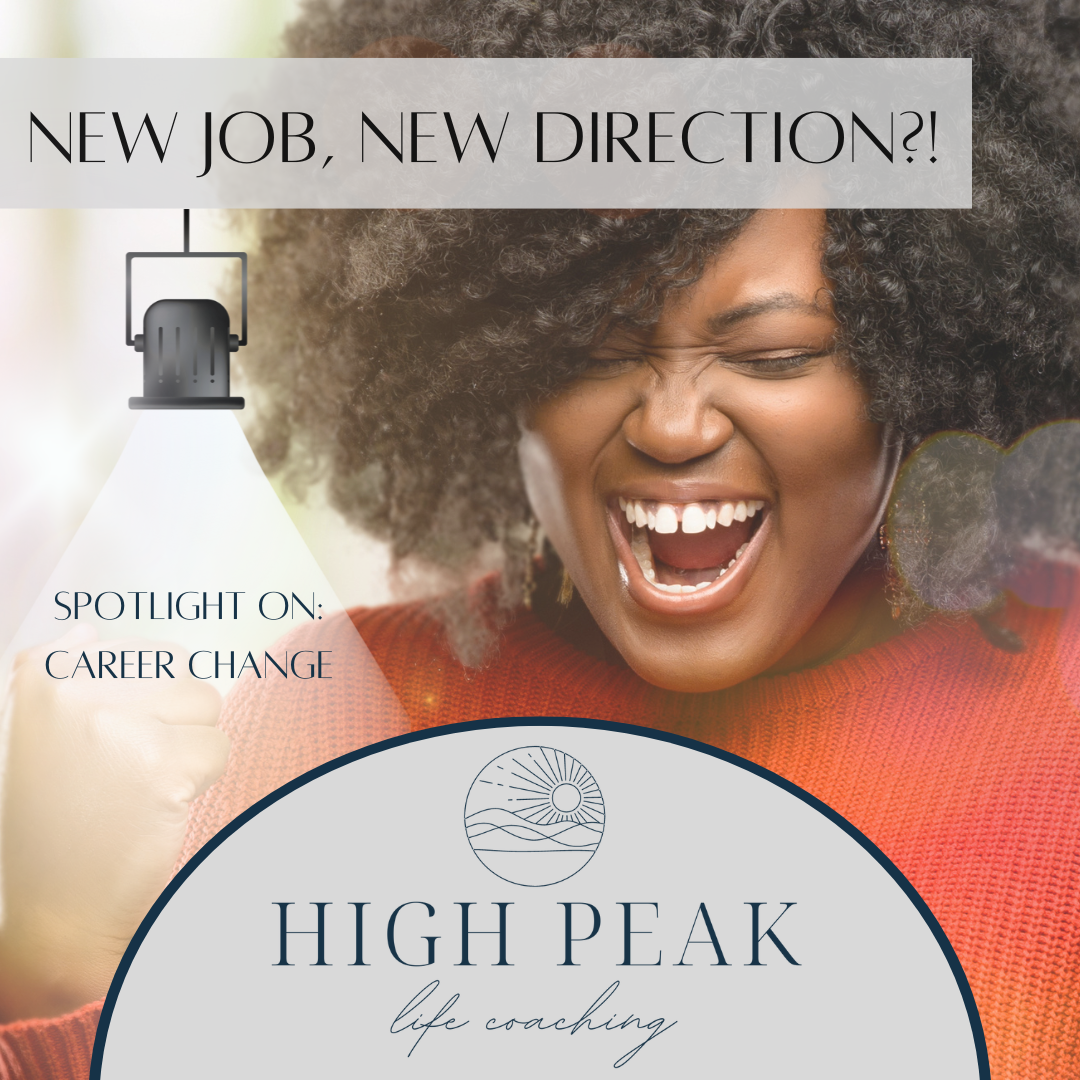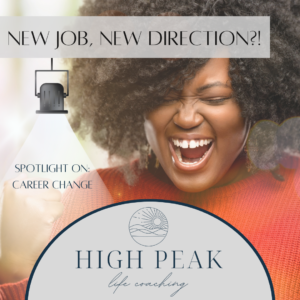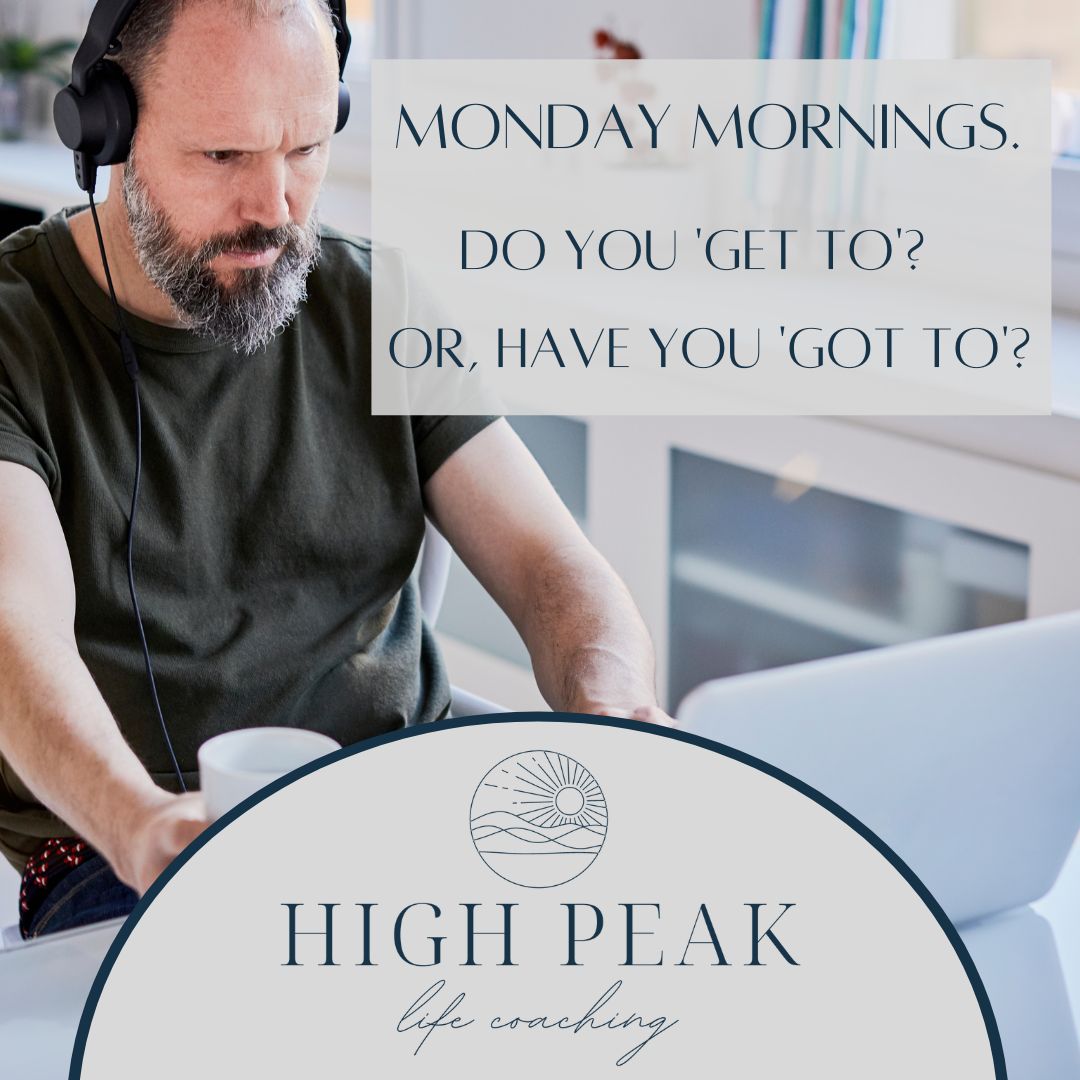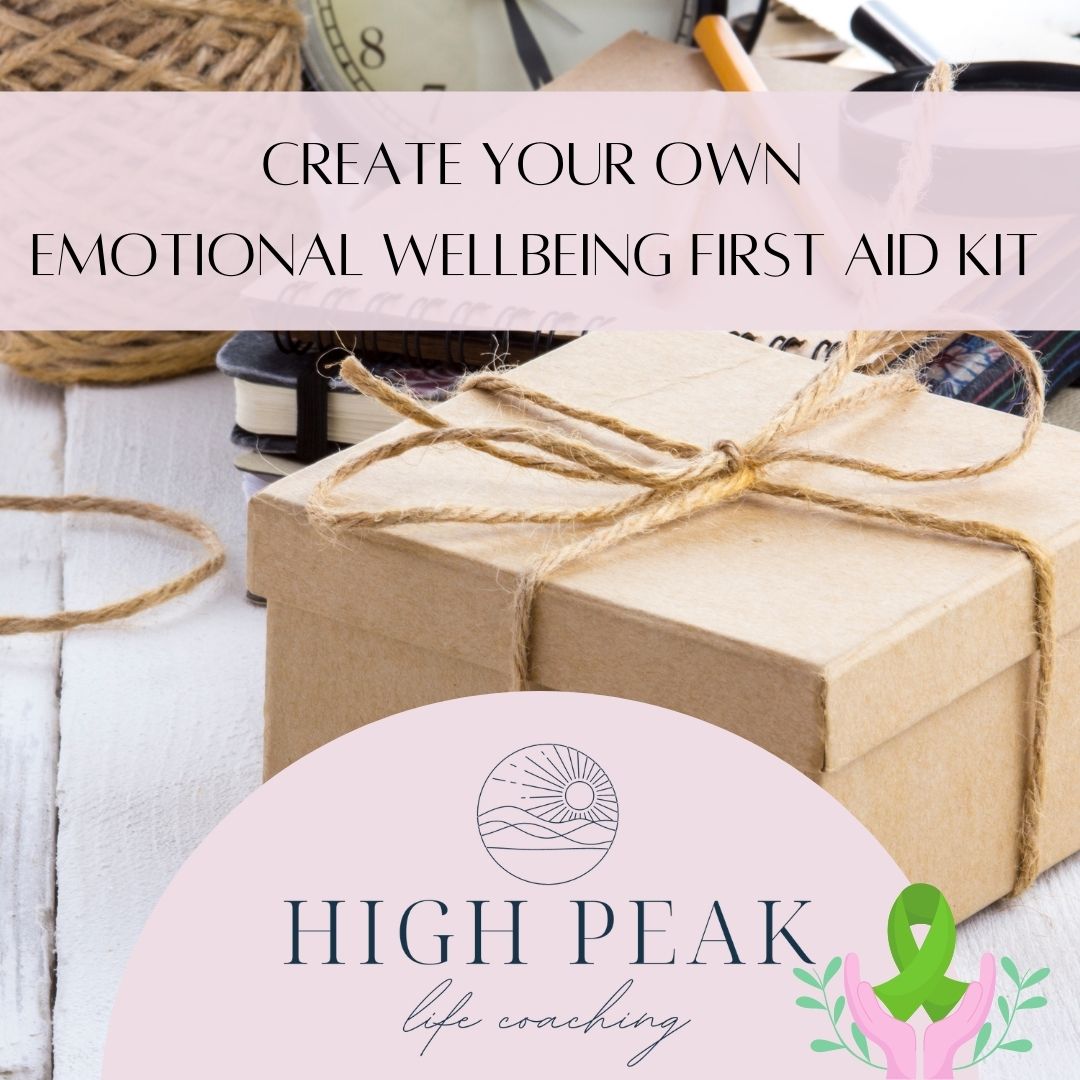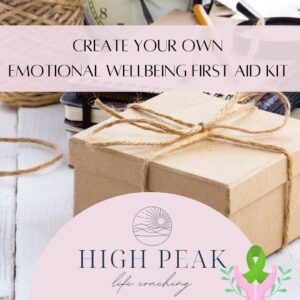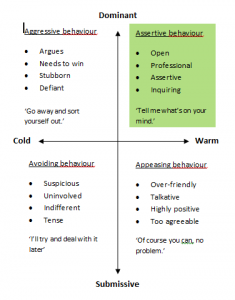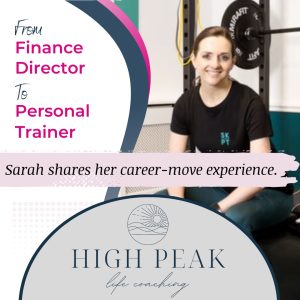
When I first met Sarah she had some great ideas regarding what she really wanted to do for work but she didn’t have the confidence in herself to take the next steps and couldn’t see what those steps might be. She was struggling with low mood and low energy and was feeling hopeless and stuck in a rut. But just 6 months later, Sarah had a much clearer sense of purpose, had made some firm and important decisions about her future and was taking steps to improve her situation. Sarah shares an honest account of the ups and downs of her significant career transition.

Hi Sarah, tell us who you are and what you do.
Hi, I’m Sarah Kenny and I run a personal training business from my home gym studio in Whaley Bridge. I offer a friendly and supportive coaching service to help people get fitter and stronger.
What were you doing before your career change?
I’d worked in the radio and TV industry for 18 years, starting as a Broadcast Assistant and working my way up to being a Finance Director at an audio production company. I was employed by the BBC and various independent production companies in different locations (from Marple to New York, although unfortunately the NY one was remote working!) The programmes I worked on included dramas and documentaries, news and in more recent years, podcasts.
How did you feel in your previous job?
For many years I loved working in the broadcasting industry and I was lucky to work with some amazing, creative and talented people. I met most of my long-term close friends through my work. I had the opportunity to work on a vast range of content and to progress through different roles
Why did you decide to change direction?
I felt like I’d achieved as much as I could in my previous career and I was really ready for a new challenge and to find a more person focused role. Back in 2017 I’d taken a part time job as an employability coach at the Prison Radio Association and I loved working one-to-one with people from different backgrounds and supporting them to achieve their goals. It was while doing some research on the fitness industry for a prisoner that I started considering retraining to become a personal trainer. Exercise had become a major part of my life and I felt passionate about sharing with others the positive impacts it can have on both physical and mental health.
What skills did you bring with you into this role from your past role and from your life experiences?
I developed fairly strong coaching skills during my time at PRA and I’ve done a lot of mentoring throughout my career. I have also acquired some key business skills from my work at independent production companies.
What are you thankful to leave behind?
Being stuck behind a desk all day and endless Zoom meetings! Feeling like I wasn’t doing a job that was true to myself and that I was becoming a stressed and miserable colleague and manager, which was not helpful to me or anyone around me.

When was the moment you decided to make the change?
Working with Sandie at High Peak Life Coaching really helped me to clarify what I actually wanted and also to work out what was holding me back.
Sandie’s support during the decision making and transition process was vital. Without support I would have kept putting off making a final decision and taking the actions I needed to as it felt like such a massive change.
What have been the greatest challenges?
It was pretty terrifying to leave a well-paid and successful career to start a business on my own in a highly competitive industry where most people leave within the first 18 months! It took a huge leap of faith and it was not an easy decision to make. For a while I was trying to do both roles part time, but it just felt impossible to give my new business the energy and headspace it needed whilst still doing the other job. In the end it felt like the only option was to take my chances and see what happened. So far, I haven’t regretted that decision!
I’ve found marketing my business really hard as I’m not a natural social media person and marketing and sales are areas I have absolutely no experience of from my previous career. There are lots of resources out there to help and I have quite enjoyed learning new skills like making videos and exploring my creativity through writing blogs. Imposter syndrome was a huge hurdle to overcome too and is something I still struggle with.
What have you learnt in the process?
There is so much support out there you can access if you reach out – you really don’t have to do this on your own. I’ve worked with a business advisor through Vision Derbyshire who helped me to hone my business plan and sales forecasts and to successfully apply for funding for equipment and further training. There are tons of useful free courses out there from organisations like D2N2 Growth Hub https://www.d2n2growthhub.co.uk and East Midlands Chambers https://www.emc-dnl.co.uk which can help you with areas of the business where you need additional training. The business community in the High Peak is brilliant, so welcoming and supportive. I’ve attended lots of networking events, both grassroots and local authority funded and met so many inspiring and interesting people. Hearing about how other people started out and sharing contacts, tips and moral support has been invaluable.
What advice would you give to someone thinking about making a change for similar reasons?
You’re more likely to regret the things you didn’t do because of fear than the things you did which felt like a risk. Even if things don’t work out the way you thought they would you will learn a huge amount and it will move you further towards where you need to be. Life is too short to be unhappy with your job, if you’ve got a chance to try to do something you love take it. If it doesn’t work out, you’ll always be able to do something else. No change has to be permanent. Also, if you can afford it, work with a coach to help you objectively assess your situation and make sure you are making an informed decision before you take the leap. It’s definitely worth the investment in my experience.
What makes it all worthwhile?
I absolutely love working one to one with my clients, getting to know them and the reasons behind their goals and then creating tailored plans which are unique to them. A client recently said that they had never stuck at any exercise routine for as long as they had with me and it was because I make their sessions really enjoyable, which was so gratifying. Hearing how the sessions are providing real world benefits to clients, as their posture improves and they have less back aches etc also makes my day.
How can people find out more about you and the service you provide?
Checking out my website (https://personaltrainerwhaleybridge.com/) and Instagram are great places to find out a bit more about me and the services I offer and to see photos of my gym. I’m always happy to answer queries via email/WhatsApp/phone and to book people in for a free consultation so we can discuss what they are hoping to achieve through working with a PT and get a feel for if I might be the right coach for them.
Feeling stuck or fed-up in your work or life? Call me today to discuss how my coaching approach could help you, too.

